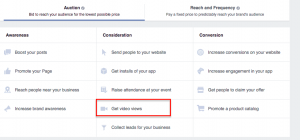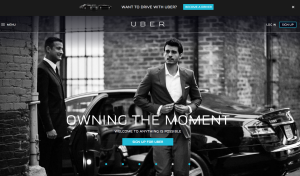
Pexels / Pixabay
We’re all faced with challenges on a daily basis. Often times we can quickly adjust the course to get back on track. For example, you could watch an inspiring TEDTalk or go for a walk outside. But, sometimes we’re face-to-face with a challenge so monumental that it drains every ounce of motivation that you have. It happened to me when my first business failed severely. And, it’s happened to pretty much every successful people in the world. Instead of throwing in the proverbial white towel, here are some ways to reclaim that motivation from those who refused to quit.
Just start.
Stephen King is one of the most well-known and successful American authors. But, it was an uphill battle. King and his wife had to work multiple jobs. He even received 60 rejections before finally selling his first short story, “The Glass Floor,” for just $ 35.
Did all of that stop King from writing? Absolutely not. As he’s said, “Amateurs sit and wait for inspiration, the rest of us just get up and go to work.”
When you want to do something, you just have to get up and get started. It can be hard and scary, but you need to take that first step.
You have to fail to succeed.
Did you know that Michael Jordan was cut from his high school basketball team? That’s crazy. But, things obviously turned out alright for MJ since he only became one of the greatest basketball players of all-time.
Here’s one of the greatest inspirational quotes you’ll find courtesy of His Airness:
“I have missed more than 9,000 shots in my career. I have lost almost 300 games. On 26 occasions I have been entrusted to take the game-winning shot, and I missed. I have failed over and over and over again in my life. And that is why I succeed.”
He also has this inspiring quote:
“Obstacles don’t have to stop you. If you run into a wall, don’t turn around and give up. Figure out how to climb it, go through it, or work around it.”
Work your tail off.
Mark Cuban went from a bartender leaving with a bunch of friends to becoming one of the most well-known entrepreneurs on the planet. He’s also an investor who owns the Dallas Mavericks, Landmark Theatres, and Magnolia Pictures. And, you’ve probably seen him on “Shark Tank” as well.
What has pushed him throughout his career? “Work like there is someone working 24 hours a day to take it all away from you.”
Never give up.
At the age of 13 Bethany Hamilton had an almost-deadly encounter with a shark while surfing. Unfortunately, the attack resulted in Bethany losing her arm. However, she was back surfing just one month later and even won first place in the Explorer Women’s Division of the NSSA National Championships two years later.
If that’s not determination, then I don’t what is.
Perseverance matters.
In 1992, Pejman Nozad was living in the attic of the yogurt shop he worked at. Today, he’s a venture capitalist who has invested in more than 30 startups. One of the traits that he’s noticed is that successful people persevere.
“Since building a successful startup is hard, founders can’t be easily rattled.
I tried to start my first business in Tehran during the Iran-Iraq War. Every night, Iraqi jets would fly over the city.
Because Iranian anti-aircraft weapons kept them from getting low enough to drop their bombs, they settled for breaking the sound barrier at a higher altitude, so windows down below would shatter. This happened almost every night.
So one day before the sun went down, I had the idea to go door-to-door selling tape for shopkeepers to put on their windows to keep them from shattering. Unfortunately, nobody wanted to buy it. And after a few hours of unsuccessful sales pitches, I gave up.
A good founder would never have done that. He would have tried a different sales pitch. A different kind of tape. Even a different idea.
Years later, I remember talking to a young, dejected founder trying to get funding who said, “Silicon Valley…it’s a war zone out there.
Well, no, it’s not. I grew up in a war zone. But being successful here does require a healthy dose of tenacity.”
Dream big.
Ray Kroc was a struggling milkshake machine salesman in his 50s. Then his met the brothers behind a little restaurant called McDonald’s.
If you watch the film The Founder, you may get a little ticked off on how Kroc eventually took the business away from the brothers. But, you can’t deny his vision and work ethic. He wasn’t content with another one-off burger joint, he wanted to conquer the world.
If you want to achieve great things, then you need to dream big.
It doesn’t have to be rocket science.
Before founding 5-hour Energy drink, Manoj Bhargava bounced back and forth between the US and India. He worked a variety of middle-class office and construction jobs and was even a monk at one-point.
He eventually came-up with the idea of a two ounce drink containing caffeine-infused B vitamins like niacin mixed with acids like taurine. He got GNC on-board, then stores like Walgreens and regional convenience stores. While it wasn’t an easy sell initially, the company kept persevering.
“What we did wasn’t rocket science,” says Bhargava. “It’s not the little bottle. It’s not the placement. It’s the product. You can con people one time, but nobody pays $ 3 twice.”
Sometimes you have to hit rock bottom.
J.K. Rowling was recently divorced, living on government aid, and could barely afford to feed her baby. She was so poor that she couldn’t afford a computer, so she had to manually type all 90,000 words of Harry Potter and The Philosopher’s Stone.
Despite all that hard work, the book was rejected dozens of time. In fact, Rowling was told to “not to quit her day job.”
“Rock bottom became the solid foundation on which I rebuilt my life,” said Rowling. She used that as motivation to keep pushing forward with her book — which obviously paid-off.
Turn your wounds into wisdom.
Oprah’s has dealt with a lot throughout her public life. She’s been criticized regarding her weight, racism, and even questioned about her sexuality. However, she had a rocky life before then.
Oprah was reportedly the victim of sexual abuse and was repeatedly molested by her cousin, an uncle, and a family friend. She became pregnant and gave birth to a child who passed away two weeks later when she was just at the age of 14.
She persevered, however. She finished high school as an honors student, earned a full scholarship to college, and went from a local network anchor in Nashville to an international superstar.
How did she accomplished this? One way has been to use those wounds to make her stronger and wiser.
Focus on your strengths.
Jan Koum is literally a rags-to-riches story. He grew up in a Soviet-era Ukraine in a home with no running water. Even after immigrating to Mountain View, CA when 16, Koum and his mother relied on welfare and food stamps.
Koum taught himself about computers in high school, barely graduated college, and landed a job at Yahoo. He eventually applied for a job at Facebook but was denied. Then in 2009, he launched WhatsApp.
Ironically, Facebook purchased WhatsApp in 2014 for a cool $ 22 billion.
Koum’s key to success? “Do one thing, and do it well.”
Use your weakness to your advantage.
While focusing on your strengths so sound advice, you shouldn’t completely forget about your weaknesses. Sir Richard Branson, for example, used his dyslexia to become the successful entrepreneur he is today.
“I need things to be simple for myself. Therefore Virgin, I think, when we launch a financial service company or a bank, we do not use jargon. Everything is very clear-cut, very simple. I think people have an affinity to the Virgin brand because we don’t talk above them or talk down to them…
If you have a learning disability, you become a very good delegator. Because you know what your weaknesses are and you know what your strengths are, and you make sure that you find great people to step in and deal with your weaknesses.
And actually, whether you are dyslexic or not, I think delegation is such an important thing for a good leader to be good at doing.
Too many leaders want to cling onto everything themselves and do everything themselves and never let go. Therefore, they never grow a group of companies like Virgin.”
Stop viewing problems as accidents.
“Fixing problems is part of your job as a business owner, so you should stop seeing problems as accidents to be afraid of,” says Yuli Ziv, founder and CEO of Style Coalition.
“Problems don’t go away as you grow and make more money. They actually become bigger. Once I changed that perspective and stopped labeling problems as negative accidents, I developed a thicker skin and focused my energy on fixing them more effectively.”
Ziv should know this. She’s an influential marketing pioneer who was an immigrant who bootstrapped her business from zero to millions.
Rise above the negatives.
Mary Kay Ash sold books and home goods door-to-door until she was 45. When she was passed over for a promotion in favor of a man who she had trained, she decided to start her own business with her husband. Then, just one month into the venture, her husband passed away from a heartache.
She received an investment from her oldest son and went to found the Mary Kay Cosmetics. She’s not only started an extremely successful business, Mary Kay is also considered one of the leading female entrepreneurs in American history.
Here’s my favorite words of advice from Mary Kay, “Don’t let the negatives of life control you. Rise above them. Use them as your stepping stones to go higher than you ever dreamed possible.”
It’s never too late.
We live in an age where we see people become extremely successful at an early age. The thing is, it’s never too late to achieve your dreams.
Take Colonel Harland Sanders, for example, He didn’t start KFC until he was 60 years old. Even then he still worked during the next decade mastering his “Secret Recipe” and attempting to franchise his business. During this time he experienced business failure and even spent nights sleeping in his car.
He eventually sold KFC at the age of 73 for $ 2 million, which be more than $ 15.4 million today.
Another example is Sir James Dyson. He didn’t have his first idea for a vacuum until he was in his 30s. But, he didn’t start his own company until 46. After more than a decade and thousands of prototypes, he’s now worth $ 4.5 billion.
Business & Finance Articles on Business 2 Community
(115)
Report Post





